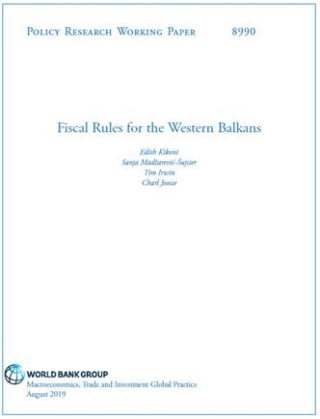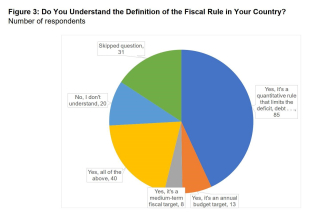
Posted by Edith Kikoni, Sanja Madžarević-Šujster, Tim Irwin, and Charl Jooste[1]
National fiscal rules can be difficult to enforce legally. A government that has the power to pass a law that restricts its deficit, debt, or spending may have the power to repeal the law if the restriction becomes inconvenient. And it may be able just to ignore the law.
So, if self-imposed national fiscal rules are to be effective, it helps if breaching them also creates a political problem. That is more likely if the rules are well understood and enjoy cross-party political support.
This World Bank paper examines these—and other—issues in a review of fiscal rules in the countries of the Western Balkans: Albania, Bosnia and Herzegovina, Kosovo, Montenegro, North Macedonia, and Serbia. It finds, among other things, that some of the rules in the region are probably too complicated to be widely understood, while in other countries, the sheer number of rules is probably a barrier to understanding, as well as to implementation.
The paper also reports the results of online survey (see chart) designed to see how much understanding of the rules there is among people who might be expected to have an interest in public finances. The responses to the survey suggest that in some countries understanding even in this group is quite limited.
One of the paper’s conclusions therefore is that more should be done in the region to make fiscal rules politically important—for example, by ensuring that they are simple, few in number, introduced after careful public debate, enacted in a legal norm that requires a supermajority to pass or amend, and changed only occasionally.
Click on the figure for a better image quality
[1] Edith Kikoni, Sanja Madžarević-Šujster, and Charl Jooste are Senior Economists in the Macroeconomics, Trade and Investment Global Practice of The World Bank Group. Tim Irwin is a consultant and former staff member of the IMF’s Fiscal Affairs Department.
The posts on the IMF PFM Blog should not be reported as representing the views of the IMF. The views expressed are those of the authors and do not necessarily represent those of the IMF or IMF policy.






